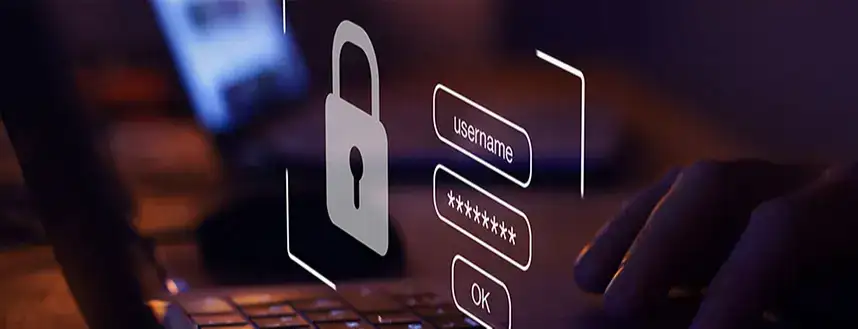Cyber Security Is Bound To Make An Impact In Your Business

Have you ever been scammed? If not, you have probably received a phone call or message carefully crafted by fraudsters with either an emotional appeal, suspicious links to click on, or claims of wrongly sent mobile money which wasn’t sent. Isn’t it interesting how cybercriminals get into your head and lead you to dark lanes of information or financial theft? Don’t be a victim. You can protect yourself and your business from malicious attacks by staying alert.
That said, what is Cyber Security? It is the protection of internet-connected computers and/or mobile devices from unauthorized access, abuse, fraud, or crime; components collectively known as cyber-attacks or cybercrime. Here are some of the common types of cybercrime:
- Phishing - Fraudulent attempt to obtain sensitive personal information
- Social engineering - The art of manipulating persons to give up confidential information
- Sim Swap Fraud - Unauthorized takeover of a victim’s phone number
- Malware attacks – Compromising technology devices using software specifically designed to disrupt, damage, or gain unauthorized access to a computer system.
- Hacktivism - the act of misusing a computer system or network for a socially or politically motivated reason.
- State-sponsored cyberattacks – Cybercrime carried out by states for intelligence gathering or espionage purposes
The harsh reality is that anyone, whether an individual or a corporate, can be a victim of cybercrime. Apart from financial losses, cybercrime can result in serious reputational damage, especially for corporates, whose effects are carried on for years.
A currently common mode of cybercrime is the sim swap fraud where cyber criminals hijack a victim’s cell phone number and use it to gain access to sensitive personal data and bank accounts through Mobile Banking Apps. Once they take control of the swapped SIM card, the crooks access the financial accounts of the victim, having socially engineered credentials or information that could facilitate account resets, and transfer all the funds to other scammed telephone numbers.
With the high rate of adoption of technology and digitization, especially during the current COVID-19 crisis, cybersecurity is a hot topic to arrest. Fraud activities are on the rise now, more than ever and businesses have to rethink their measures. An Africa Cybersecurity Report 2019/2020 by Serianu – a Pan-Africa-based cybersecurity and Business Consulting firm, shows that malware attacks are expected to rise, and in particular, locally developed or re-engineered strains.
The same report also reveals that Kenya's economy lost more than Kshs. 29.5 billion from cyber-attacks in 2018. According to an article by the Business Daily in February 2021, The Communications Authority of Kenya (CA) data showed that more than 56 million cyber threats were detected nationwide in comparison to 37.1 million in 2019. The CA further expounded that a majority of the threats were malware attacks at 46 million, followed by web application attacks at 7.8 million while 2.2 million Distributed Denial of Service (DDoS) threats were detected during the same period.
Evidently, there’s a need to develop diplomatic strategies to curb financial losses and information system vulnerabilities, thereby improving/earning customer trust. This said the top priority for a business is safeguarding its assets and client information from unauthorized access.
So why is cybersecurity bound to make an impact on your business?
- It is now a requirement. Businesses are now bound to be cautious because there are legal consequences of cyber-attacks. Recently, Governments around the world have enforced data protection laws to safeguard client information. The Data Protection Act No. 24 of 2019 in Kenya reveals the provisions for the regulation of the processing of personal data; for rights of data subjects and obligations of data controllers and processors; and for connected purposes. The Computer Misuse and Cybercrimes Act of 2018 establishes various offenses including unauthorized interference or interception of computer systems programs or data, false publication of data, cyber terrorism, identity theft and impersonation, phishing, computer fraud among others, that corporates should protect their customers from.
- A Mitigation/contingent plan against reputational damage is important now, more than ever. In this digital era and in an ever-competitive marketplace, it is important to uphold great customer perception. As a business, the more transparent you are towards mitigating cyber risks and solving crises when they occur, the more competitiveness you gain. Your customers, shareholders, and other stakeholders want to feel a sense of security and that they can trust you – otherwise they will leave. Reputation and customer retention, therefore, go hand in hand. In this cyber age, it matters what your relevant internal and external stakeholders think about you because it affects your sales funnel and trust score in the long run. Transparency should therefore be your key focus towards upholding the reputation of your business.
- Technology is ever-changing, which means that malicious attacks are also evolving as well. There is no gainsaying the essence of reinforcing the security measures to mitigate any future surprise attacks. As a business, ensure that you stay vigilant of emerging data breaches/threats and seek advice from experts when necessary. It is therefore important to implement cybersecurity practices that not only protect your business information but your customers’ information as well.
In this fourth industrial revolution, you must remain mindful of your cybersecurity and that of your business. We are on your side!








